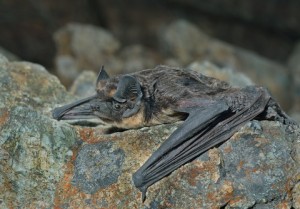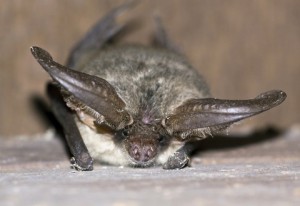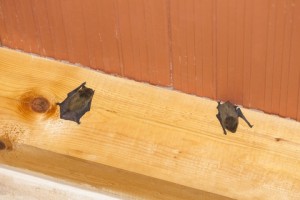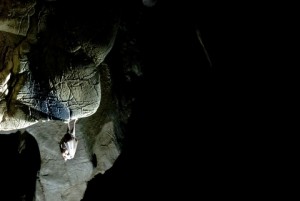 Bats are a valuable part of Georgia’s ecosystem. They provide a beneficial service by foraging on flying insects, many of which are pests. A single bat can eat hundreds of mosquitoes in one hour or about half its own body weight in one night. They also eat large numbers of moths and beetles that cause agricultural damage.
Bats are a valuable part of Georgia’s ecosystem. They provide a beneficial service by foraging on flying insects, many of which are pests. A single bat can eat hundreds of mosquitoes in one hour or about half its own body weight in one night. They also eat large numbers of moths and beetles that cause agricultural damage.
Caves and large dead trees with slabs of loose bark and hollowed centers provided shelter for roosting. Also, bats sometimes choose to roost in buildings or homes. If bats become a nuisance by roosting in a building where they are not wanted, the best method for resolving the problem is to install an excluder. An excluder is simply a one-way door that allows the bats to exit but not re-enter. Once all the bats are out, the hole can be repaired. Exclusions should not be conducted when young, flightless bats are present, which typically would be during the period from May 1 to August 15. Like many mammals, bats can become infected with rabies. Use caution when near bats and try not to touch or harass them, especially those that appear to be sick or behaving abnormally.
In nature, bats pose little threat to humans. However, bats will bite when first captured and handled or if trapped inside. Resident species of bats in the United States are capable of being infected with rabies, but the incidence of rabies is the same as in other mammals. Bat guano is extremely dangerous to your health and could be fatal if bats continue to live inside your home.

 These are sometimes called Mouse-eared Bats. The genus name Myotis is derived from two Greek words, mys (mouse) and otis (ear), referring to the long, pointed, leaf-like projection that arises from the inside of the ear in this genus of bats.
These are sometimes called Mouse-eared Bats. The genus name Myotis is derived from two Greek words, mys (mouse) and otis (ear), referring to the long, pointed, leaf-like projection that arises from the inside of the ear in this genus of bats. .
.
